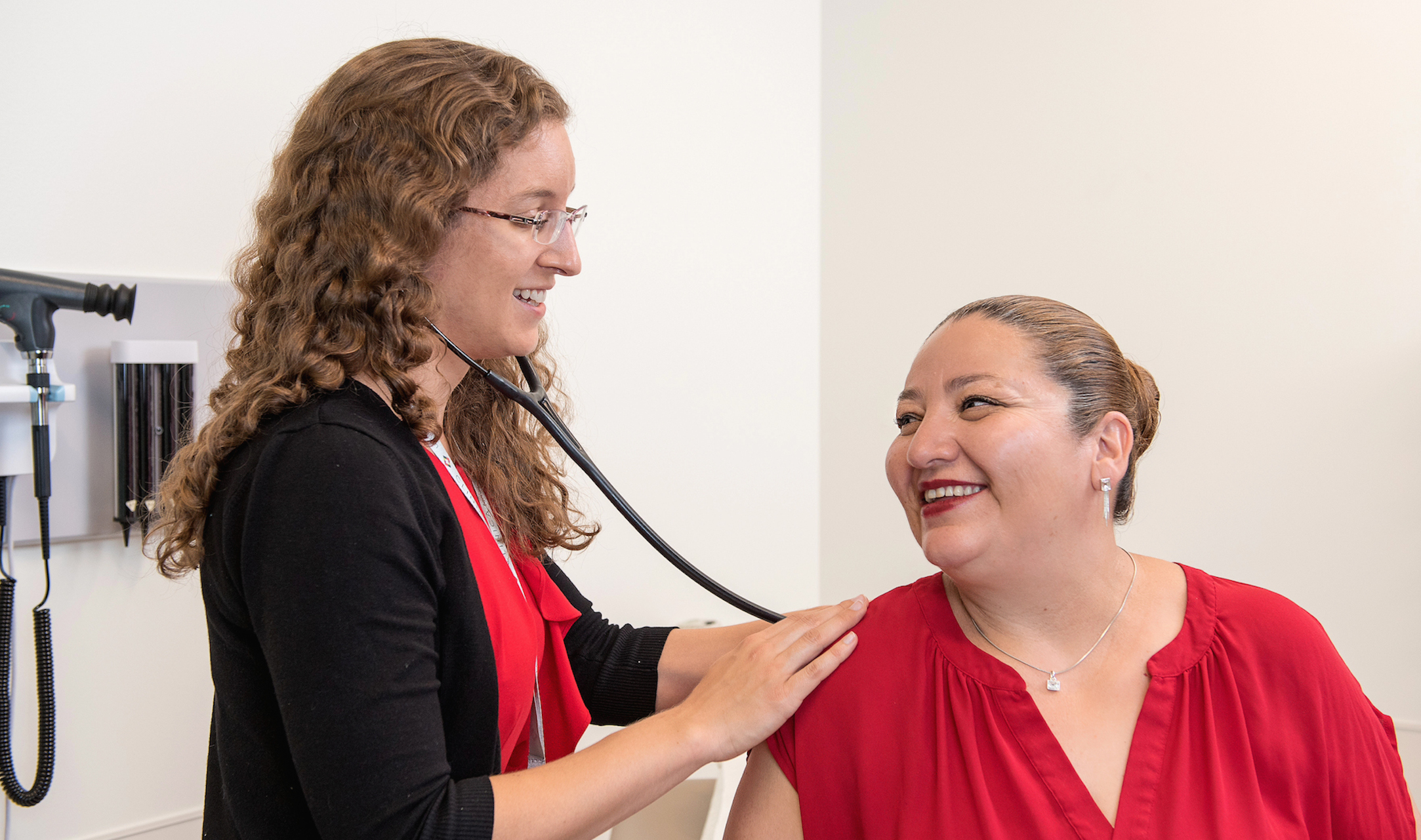One year after graduating from Iowa State University, Kate Speckman (’07 biology) navigated a canoe down the flooded Babahoyo River in Ecuador, equipped with medicine that could save a life.
Speckman, a medical mission volunteer at the time, had been assigned to the province of Los Ríos to help distribute medical supplies from anywhere safe and dry – a church, a school, even a bar. Ecuador’s worst rainy season in a quarter-century had devastated croplands and displaced thousands of families across the country.
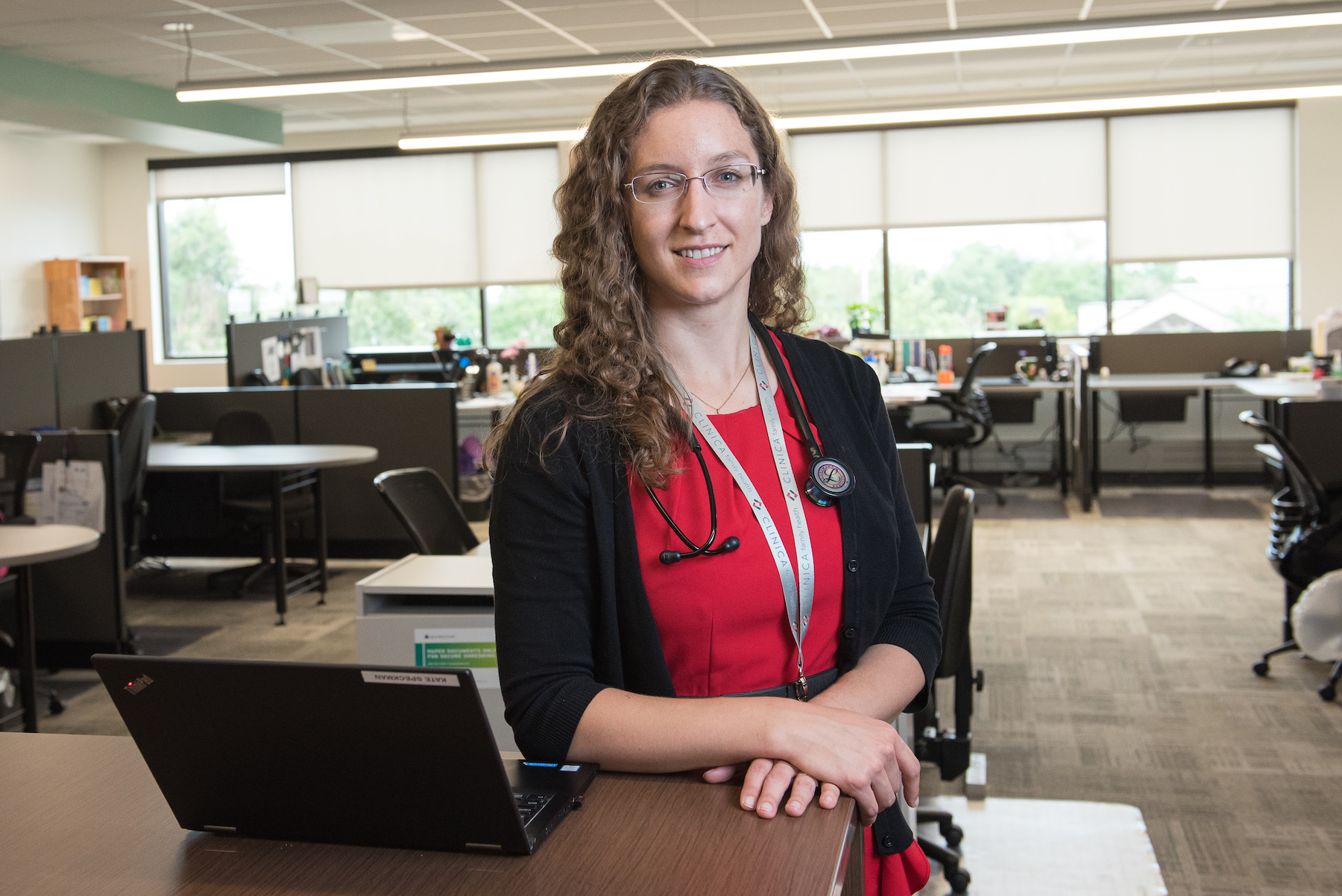
Each day Speckman watched doctors decide how to best distribute limited medical supplies among flood-weary families with diagnoses ranging from respiratory infections to diabetes.
“I remember a doctor who was giving out a year’s supply of diabetes medication to a patient,” she said. “Someone else would say, ‘No, we can’t do that. Why so much to one patient?’ But there was no right answer.”
“That was one of the things that inspired me to get a public health degree as well as a medical degree,” she said. “You can't always do the right thing for everyone all the time, which is heartbreaking, but I wanted to be part of the solution.”
And now she is, thanks to building a strong foundation with the College of Liberal Arts and Sciences.
"You can't always do the right thing for everyone all the time, which is heartbreaking, but I wanted to be part of the solution."
Learning to lead
Long before she learned how precious a single pill could be in a disaster zone, Speckman, a native of Fairfield, Iowa, grew interested in global health as an Iowa State student.
“I knew Iowa State was strong in the biological sciences,” she said. “I wasn’t completely sure what I wanted to study. I thought I could explore for a little bit, and then I fell in love with medicine while there.”
First, she spent six weeks in Honduras on a medical mission trip, assisting a medical clinic with water sanitation projects.
“I really learned about the greatness that exists in the world and how you can impact someone on an individual level and impact communities on that level, too.”
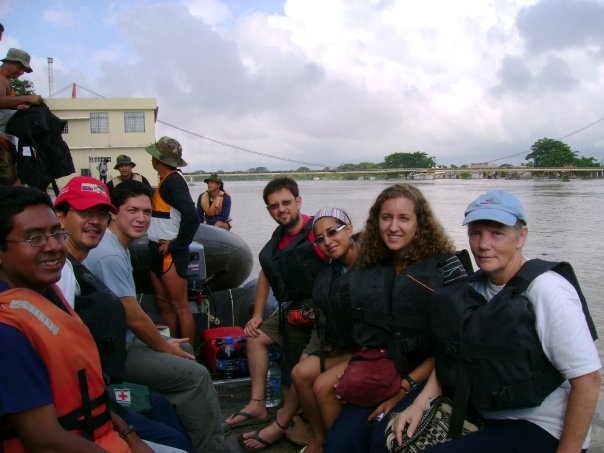
During her sophomore year, she joined SIMAC (Students for International Medical Aid Club). SIMAC members, often LAS pre-med majors, gathered medical supplies donated by Iowa hospitals and clinics and arranged for ISU study abroad groups to deliver them to health providers in countries such as Peru, Belize and Guatemala.
“I loved being with a group of people that was like-minded,” Speckman said. “It was my first real insight into the difficulties of doing global health work.”
Sometimes passion pushes you. Speckman grew from a shy sophomore to a capable, determined leader, Nancy Guthrie, director of LAS Study Abroad and the club’s former advisor, said.
“Kate, in her own quiet way, was really a leader to bring it all together,” Guthrie said. “She was well-organized and knew the impact the group could have. It doesn't surprise me she continues to work with populations that would have been served by some of the SIMAC supplies.”
Speckman began planning for her future in global health, adding LAS anthropology, economics and Spanish courses to broaden her worldview. She also got hands-on undergraduate research experience in a Parkinson’s disease laboratory.
Going global
In 2013, Speckman graduated from Duke University School of Medicine with degrees in medicine and public health and a year of research in Haiti on her resume.
During medical school, she continued to travel the world, helping Haitian midwives learn safe delivery practices, studying HIV transmission in Zimbabwe and even going to Geneva, Switzerland, in service of the World Health Organization. To award her global impact, the Iowa State University Alumni Association honored Speckman as a STATEment Maker in 2015, an award that recognizes the early personal and professional accomplishments of ISU alumni 32 years of age and under.
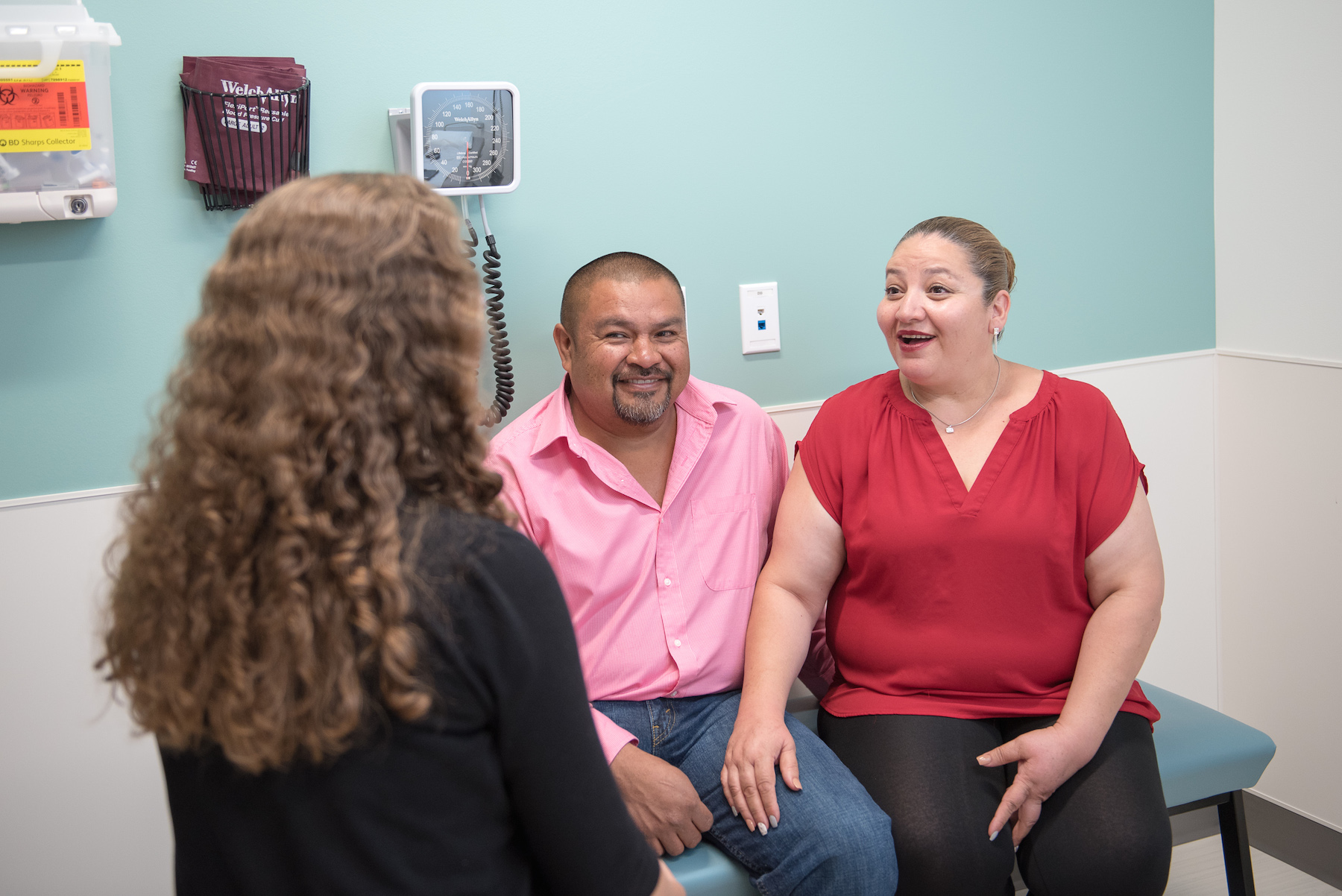
Today, Speckman is closer to home, but serves a diverse patient population as a family physician with Clinica Family Health Services, a nonprofit community health provider in Colorado that served more than 50,000 patients in 2016.
“ Family medicine is an ideal career for someone interested in global health because it allows you to have the enormous breadth of knowledge necessary for global health careers, with training in obstetrics and procedural skills as well,” she said. “In a way I see my current job as a continuation of my interests in underserved medicine and global health. Some of the challenges are similar, even though I am working in the United States.”
More than 96 percent of Clinica’s patients live at or below 200 percent of the federal poverty level. More than 75 percent are Hispanic or minorities. While many are working adults, their jobs often do not provide health insurance. Speckman is part of a safety net, working in a team-based care model that addresses a full range of patient needs, from transportation barriers to behavioral health services.
One day she may be explaining prescription refills to a Nepali refugee family, the next she is breaking the difficult news of a stomach cancer diagnosis to an uninsured woman.
“My patients teach me about daily courage and resilience,” Speckman said. “Many have faced incredible difficulties to stand where they are today and have been through trials I can’t even imagine. Still, they continue to strive for what is best for themselves and their families.”
“My patients teach me about daily courage and resilience. Many have faced incredible difficulties to stand where they are today and have been through trials I can’t even imagine. Still, they continue to strive for what is best for themselves and their families.”
Recently, Speckman was reminded of how meaningful her work is while sitting with a group of diabetes patients who meet every three months.
“At our last meeting, they spontaneously started giving thanks to each other for teaching one another so much, to the case manager who runs the group, and to me for helping them control their diabetes and helping them toward their wellness goals. That one felt good, and reminded me why I keep doing what I do.”
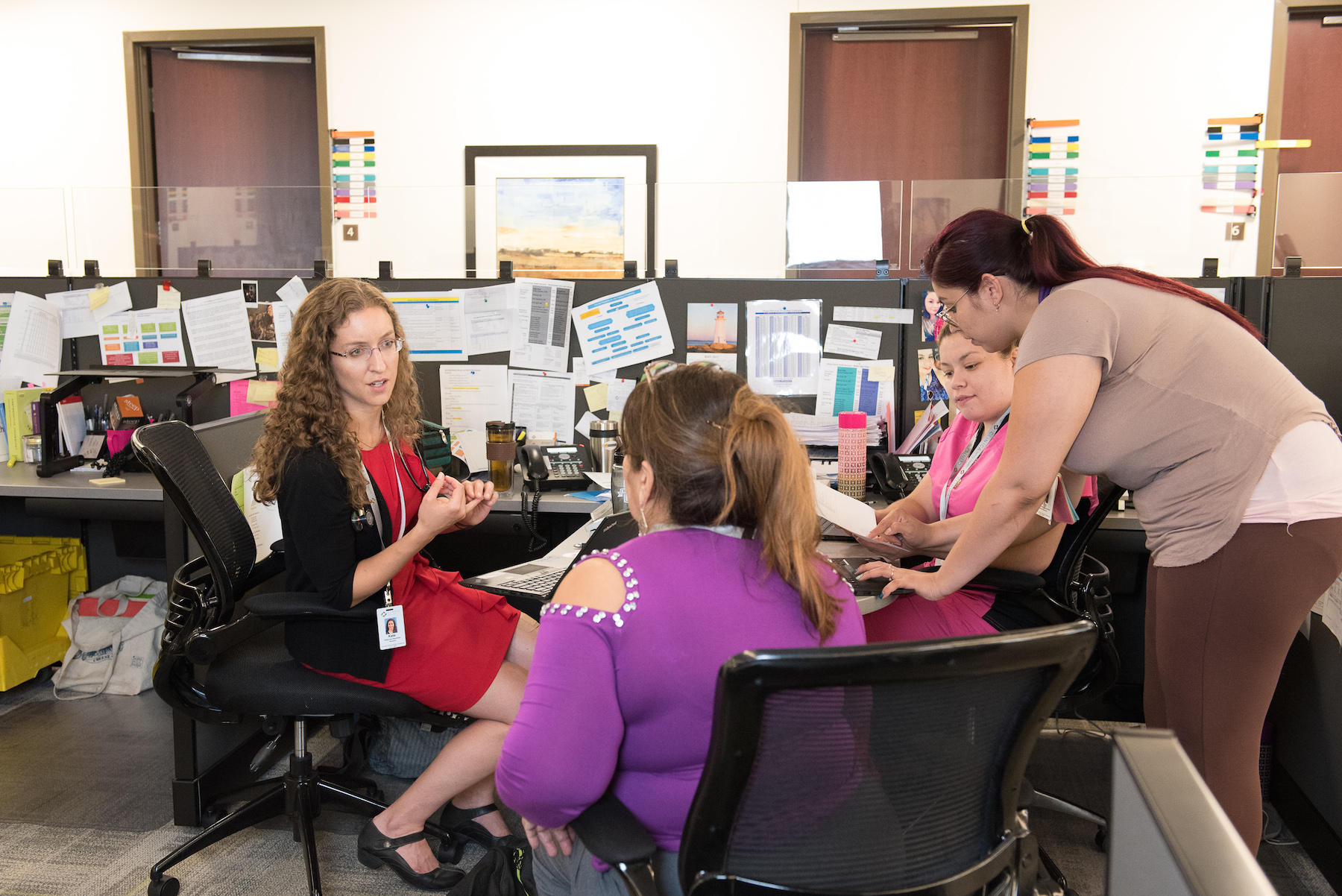
Speckman is a young physician. She will treat thousands of people in years to come. But her patients have already given her an important prescription of their own: how to live not just a healthy life, but a meaningful one.
“My patients remind me that everyone is always trying to do the best with what they have been given in life,” she said. “They teach me about the power of deep relationships and having people close to you to rely on when times get tough. They show me what really matters in this life is not material worth, but love, faith and family.”
